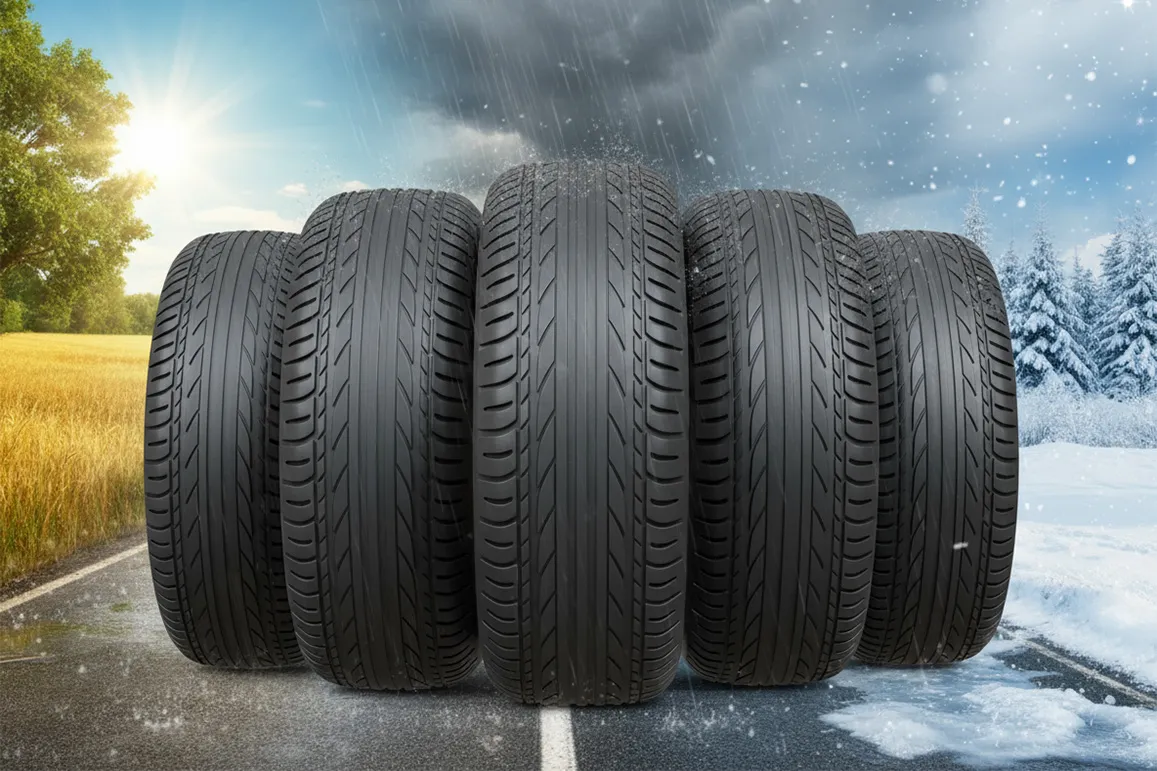When it comes to your car, tires aren’t just rubber circles—they’re the key connection between your vehicle and the road. Choosing the wrong type can affect safety, handling, and even tire longevity. The three main options most drivers face are all-season, winter, and summer tires. Each is designed for specific conditions, and understanding their differences can make a huge difference in performance and comfort.
If you’re getting your tires checked or replaced at a Best Car Repair and Service Station in Hyderabad, understanding these tire types can help you make a smarter, long-term choice.
Let’s break down what makes each tire unique and how to decide which one fits your driving needs.
Understanding All-Season Tires
All-season tires are the “jack-of-all-trades” of the tire world. They are built to handle a variety of conditions without specializing in one extreme. These tires work well on dry roads, light rain, and mild winter weather. Their tread design and rubber compound are made to provide steady performance across multiple seasons, which makes them a convenient and cost-effective option for everyday city driving.
The main trade-off is that while they’re versatile, all-season tires don’t excel in harsh climates. Heavy snow, icy roads, or extremely hot surfaces can reduce their grip and braking ability. That’s why they’re best suited for drivers in regions with moderate weather and predictable road conditions.
Professionals offering Car Repair Services in Hyderabad often recommend all-season tires for urban drivers because they deliver dependable performance throughout the year without frequent replacements.
The Advantages of Winter Tires
Winter tires are purpose-built for cold weather and slippery surfaces. They feature deep treads and softer rubber that remain pliable in freezing temperatures. This allows them to grip snow, ice, and slushy roads much better than other tire types. If you drive in areas with long winters or frequent snowfall, winter tires can significantly improve safety and handling.
However, these tires aren’t meant for hot climates. High temperatures can wear out the softer rubber quickly, making them less durable in summer. This is why switching between winter and summer tires depending on the season is common in colder regions.
For those who own high-end vehicles, experts at Luxury Car Service in Hyderabad suggest premium winter tires that maintain grip and performance while protecting the suspension and wheel integrity in harsh weather.
Summer Tires: High-Performance in Warm Weather
Summer tires are designed with warm weather and dry roads in mind. Their harder rubber compounds and shallower treads provide precise handling, responsive steering, and shorter braking distances. If you live in a hot region or spend a lot of time on highways, summer tires deliver the control and performance that all-season tires can’t match.
On the flip side, these tires perform poorly in cold or snowy conditions. The rubber hardens in low temperatures, reducing traction and increasing the risk of skidding. So, while summer tires are excellent for performance, they’re not suitable for winter driving.
You can always consult with professionals at a Best Car Repair and Service Station in Hyderabad to choose the most suitable tire brand and specifications for your vehicle type.
Comparing All-Season and Winter Tires
For drivers in regions with mild winters, all-season tires often provide a good balance of performance and durability. They last longer than winter tires and handle light rain or occasional snow reasonably well.
Winter tires, in contrast, are unmatched in icy or snowy conditions but can wear quickly if used in warmer weather. If you live in a place where winter is harsh, winter tires are a safer and more reliable option.
Here’s a quick comparison:
- All-season tires: Affordable, versatile, long-lasting, but limited in extreme cold or heat.
- Winter tires: Maximum grip in snow and ice, but faster wear in warm climates.
Comparing All-Season and Summer Tires
All-season tires are practical for year-round driving in moderate weather, while summer tires prioritize high-temperature performance and road grip. Summer tires shine on highways and dry roads, giving precise steering and faster response. All-season tires offer steadier, consistent performance without needing seasonal swaps, making them ideal for everyday city use.
For luxury car owners who value performance, professional advice from a Luxury Car Service in Hyderabad ensures you choose tires that complement your car’s suspension and driving dynamics.
How to Choose the Right Tire
Selecting the correct tire comes down to two main factors: climate and driving habits.
- If you drive mostly in cities with mild, predictable weather, all-season tires are the most convenient and economical choice.
- If you live in areas with icy roads or heavy snow, winter tires are essential for safety and traction.
- For hot climates, performance driving, or highway-heavy commutes, summer tires will give you the control and responsiveness you need.
Always check your local weather trends and consider how often you drive on highways versus city streets before making a decision.
You can always visit expert mechanics offering Car Repair Services in Hyderabad to inspect your tire condition and get recommendations for replacement or rotation.
Quick Look at Tire Strengths and Weaknesses
| Tire Type | Best For | Strengths | Weaknesses |
| All-Season | Daily city driving | Balanced performance, cost-effective | Weak in extreme snow or heat |
| Winter | Snowy or icy roads | Excellent traction in cold conditions | Wears quickly in warm weather |
| Summer | Hot climates & highways | High grip, responsive handling | Poor in snow or icy conditions |
FAQ
Can I use summer tires in winter?
Technically yes, but it’s unsafe. Cold temperatures harden summer tires, reducing traction and increasing the risk of slipping. Winter or all-season tires are a much safer choice.
Are all-season tires suitable for snow?
They can handle light snow, but heavy snow or icy roads require winter tires for maximum safety.
Are summer tires safe in hot weather?
Absolutely. They’re designed for high-temperature driving, offering excellent braking and handling. Just be cautious on very wet roads.
What’s the difference between summer and all-season tires?
Summer tires excel in hot and dry conditions, while all-season tires provide consistent performance across multiple seasons but can’t match summer tires’ grip in high heat.
Final Thoughts
Tires are more than a necessity—they’re a critical safety feature. Choosing the right type ensures your car handles well, brakes effectively, and remains safe under varying conditions.
- All-season tires: Great for balanced, everyday performance.
- Winter tires: Essential in icy or snowy climates.
- Summer tires: Perfect for warm-weather performance and highway driving.
Before purchasing or replacing your tires, consult professionals at a Best Car Repair and Service Station in Hyderabad. They can help you select, install, and maintain the right set of tires for long-term safety and performance.
Whether it’s routine maintenance or a Luxury Car Service in Hyderabad, proper tire care enhances your driving experience and extends your vehicle’s lifespan.


